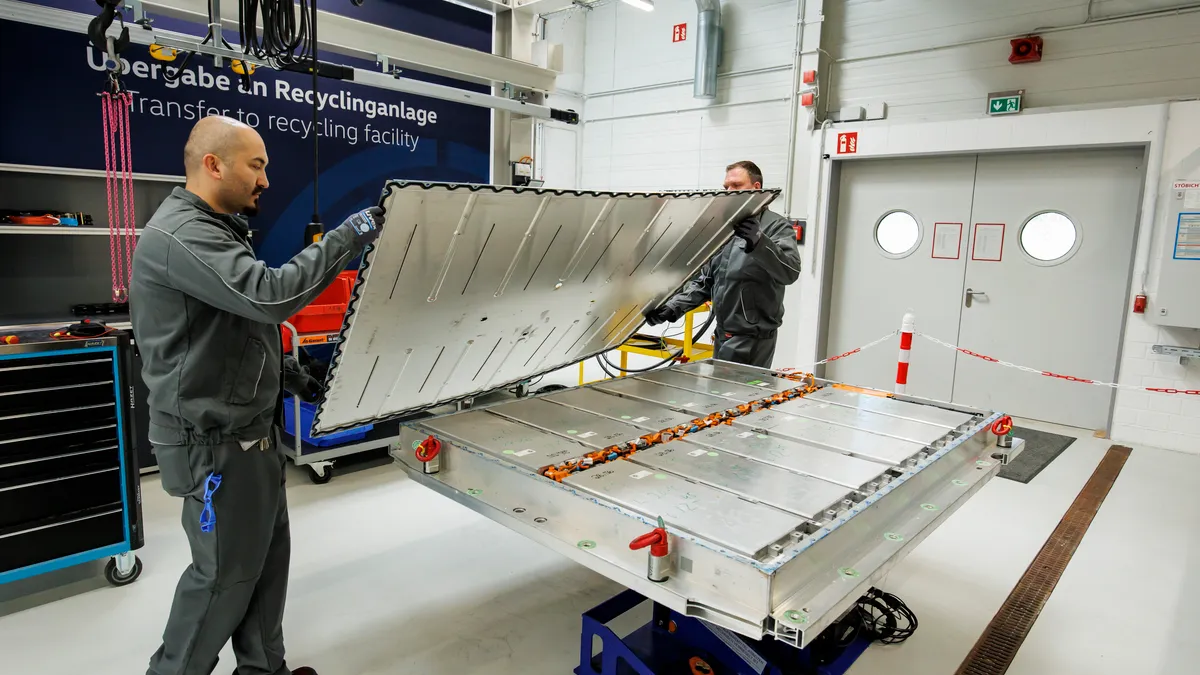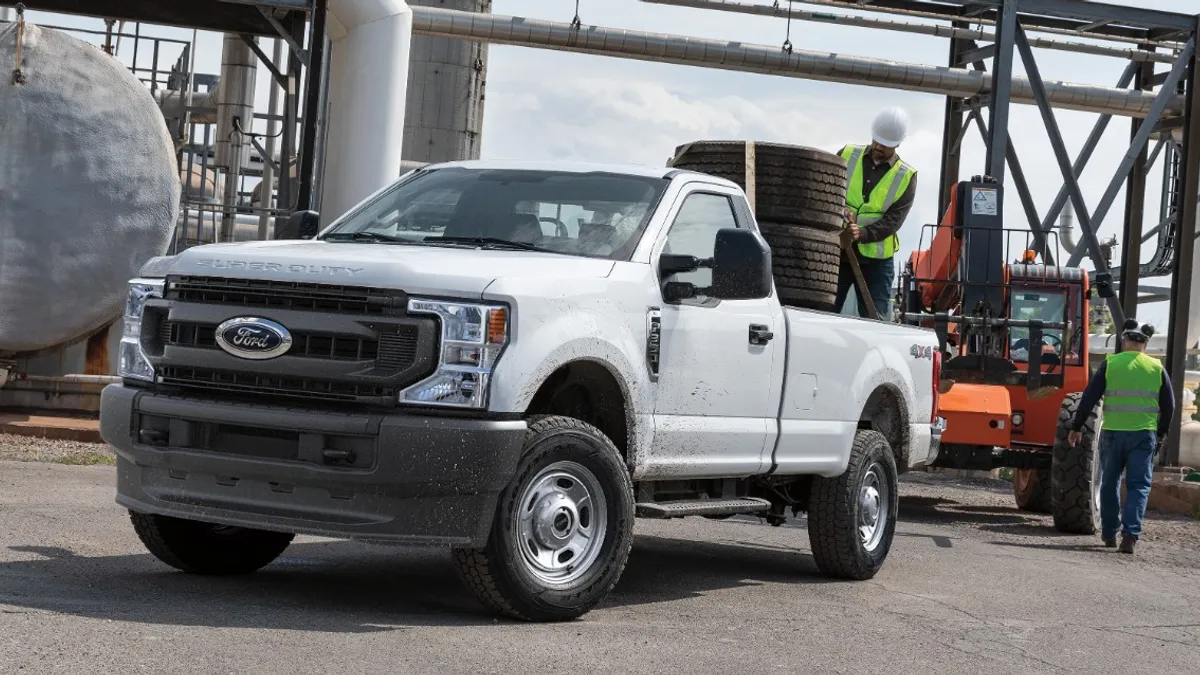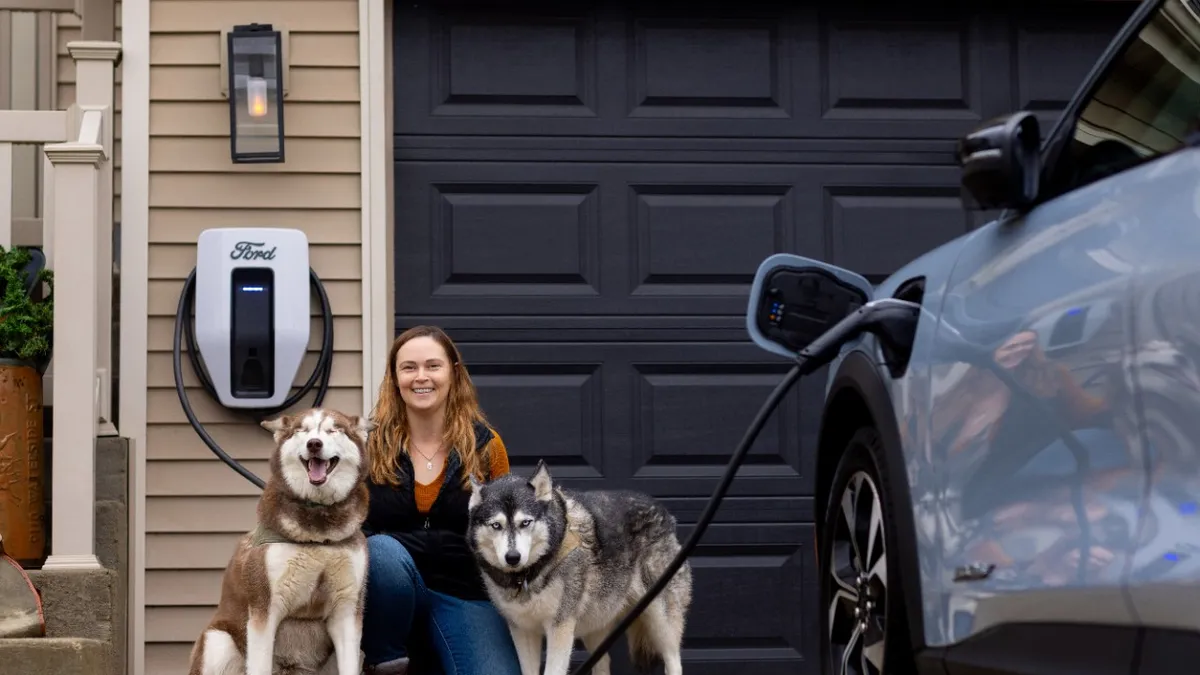Dive Brief:
- As electric vehicle adoption grows, an increasing number of batteries will reach the end of their useful life and require an alternative recycling solution to prevent them from being discarded in landfills, according to a report from Guidehouse Insights.
- Recycling EV batteries could help establish a closed-loop supply chain and reclaim up to 98% of key raw materials to manufacture new batteries.
- Ramping up recycling efforts may lessen automakers’ reliance on critical raw materials from international suppliers, including cobalt, lithium and nickel.
Dive Insight:
Guidehouse estimates global electric vehicle sales could reach 57 million units by 2030. Some automakers, including Tesla, Ford and Toyota, have already entered into battery recycling agreements with Redwood Materials to establish more sustainable EV battery supply chains.
"Recycling is environmentally sustainable, and it meets broad government and industry strategic goals of mitigating international supply chain and geo-political risks by decreasing reliance on material extraction and refinement dominated by a handful of countries," Adam Winston, research analyst with Guidehouse Insights, said in a statement.
According to Redwood, critical raw materials, such as lithium, nickel, copper and graphite, make up nearly 80% of the manufacturing cost of producing lithium-ion battery cells for EVs. Guidehouse Insights predicts that sales of EVs in the U.S. will reach 6.6 million units by 2030, representing nearly 33% of new car sales.
In 2022, Ford and Volvo signed an agreement with Nevada-based Redwood Materials to recycle end-of-life battery packs from hybrid and electric vehicles in California. They were the first automakers to support the program in California.
Redwood says its technology can recover, on average, 95% of nickel, cobalt, lithium and copper from end-of-life EV batteries. The company aims to produce 100 GWh of cathode and anode components per year by 2025, which is enough to manufacture battery cells for roughly 1 million EVs annually.
Redwood, founded in 2017 by Tesla co-founder and former CTO J.B. Straubel, received a $2 billion loan commitment from the U.S. Department of Energy in February to build and expand a battery materials campus to support the growing EV market and bolster the domestic supply chain. The Biden Administration wants zero-emissions vehicles to account for 50% of U.S. auto sales by 2030.
Tesla’s battery supplier, Panasonic, plans to use Redwood’s recycled cathode material for its recently announced battery plant in Kansas, which will begin cell production in 2025. It will be the first time materials recovered from used batteries will be integrated into large-scale battery cell manufacturing in the U.S.














